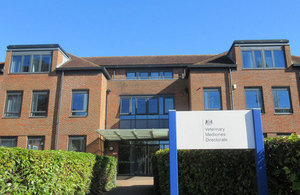Three Trustees appointed to the National Gallery
Catherine Goodman
Catherine Goodman (b.1961) is an artist, educator and the Founding Artistic Director of the Royal Drawing School, which she co-established with HRH The Prince of Wales in 2000. She trained at Camberwell School of Arts & Crafts and at the Royal Academy Schools for her MA. In 1987 she won the Royal Academy Gold Medal and in 2002, she won First Prize in the BP Portrait Award at the National Portrait Gallery. She was made Lieutenant of the Royal Victorian Order for services to the Royal Drawing School in 2014. Goodman is represented by Marlborough Fine Art and has had numerous solo exhibitions including Portraits from Life at the National Portrait Gallery in 2014 and the last house in the world at Marlborough Fine Art London in 2016; in 2019 she exhibited at Hauser & Wirth Somerset following five months as Artist in Residence, and at Marlborough Gallery New York with her solo exhibition, the light gets in. Goodman’s paintings are held in numerous private and public collections including the National Portrait Gallery, the Fitzwilliam Museum Cambridge and the Royal Collection Trust. Goodman is included in ‘Great Women Artists’ published by Phaidon Press in 2019.
Lord Anthony Hall of Birkenhead CBE
As Director-General, Tony Hall is the editorial, operational and creative leader of the BBC. He is responsible for the BBC’s public service, as well as its commercial operations, in the UK and around the world. He took up the post in April 2013. In January 2019, Tony was also appointed President of the European Broadcasting Union. Tony was Chief Executive of the Royal Opera House from 2001-2013. It was a period of innovation and transformation, financial growth and creative excellence. Prior to that, he was Director of News and Current Affairs at the BBC establishing new services for the digital age, including news online, the BBC News channel, Radio 5 Live, and BBC Parliament. He was previously a non-executive director, and Deputy Chairman, of Channel 4. In 2012, Tony chaired the Cultural Olympiad Board and also joined the board of the London Organising Committee for the Olympic and Paralympic Games. He is a Trustee of the Paul Hamlyn Foundation, was a Board Member of 14-18 Now, set up to commemorate the centenary of World War I. He is an Ambassador for the Creative Industries Federation and a Vice President of the Royal Television Society. He was made a life peer in 2010, and sits on the crossbenches in the House of Lords.
Stuart Roden
Until January 2019 Stuart was Chairman of Lansdowne Partners and Chairman of the Management Committee having previously co-managed the Developed Markets funds since their inception in 2001. Stuart is non-Executive Chairman of Hetz Ventures, non-Executive Chairman of Tresidor Investment Management, Chairman of Unlockin Potential and a trustee of various third sector organisations including The Centre for Social Justice, Jewish Care and The Rabbi Sacks Foundation. He is also the non-executive Chairman of the Investment Committee of Marylebone Partners LLP and Chairman of the Jewish Care and Oxford Centre for Jewish and Hebrew Studies Investment Committees. Stuart started his career in the City in 1984, joining SG Warburg & Co, he worked at McKinsey and prior to joining Lansdowne in 2001, was a Managing Director of Merrill Lynch Investment Managers. Stuart received a first-class honours degree in Economics (BSc) from the London School of Economics, he is married with four children and lives in London.
These roles are not remunerated. These appointments have been made in accordance with the Cabinet Office’s Governance Code on Public Appointments . The process is regulated by the Commissioner for Public Appointments. The Government’s Governance Code requires that any significant political activity undertaken by an appointee in the last five years is declared. This is defined as including holding office, public speaking, making a recordable donation or candidature for election. Catherine Goodman, Lord Tony Hall and Stuart Roden have made no such declarations.
